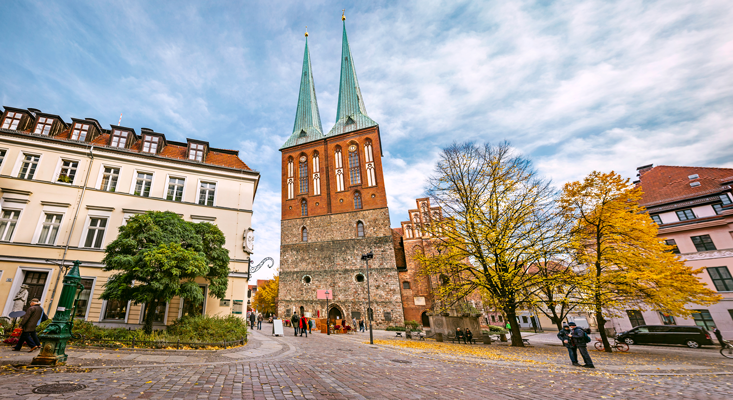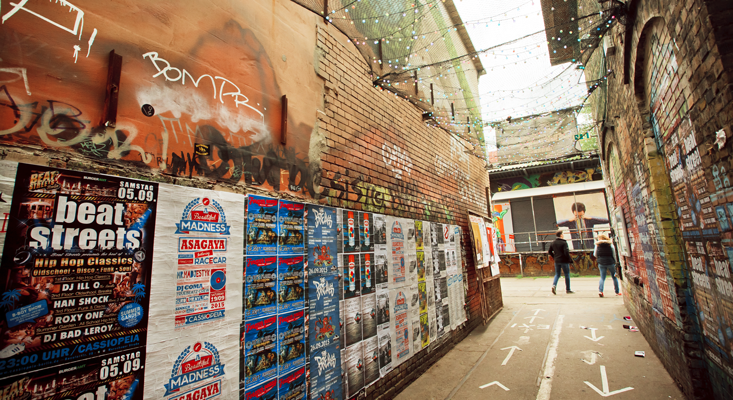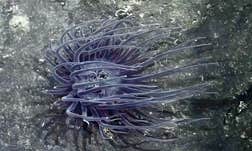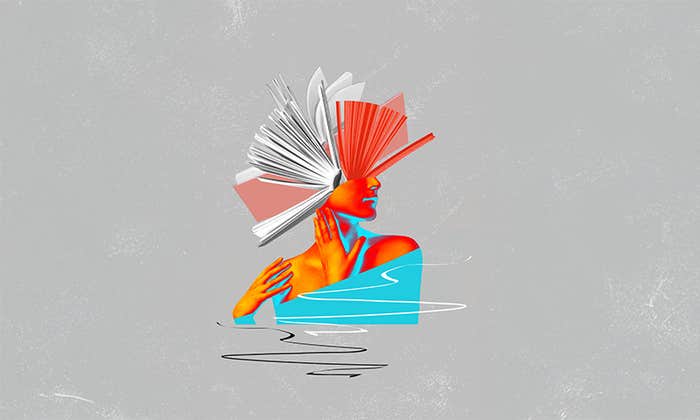Before Corrine’s husband abandoned her in Berlin, he liked to say that her name reminded him of the word “corrupt.” But ending in a twist rather than a split. Her last name was the French word for “swimsuit” but he never mentioned that. This seemed strange now that he was gone, as many of his behaviors did. Kind of like how the best view of a city is when you’re leaving it.
They were in Germany on his business, which was diplomatic in nature and disclosure. It was not unusual for him to spend several days away at a time without telling her where he was going or why. When they’d first started seeing each other this seemed sexy; Corinne could imagine him tangled in some web of greater intrigue. Seven years in though it mostly involved making small talk with her fellow wives at black-tie dinners, where it seemed the less you knew about your spouse’s work the more important it must be. Corinne very rarely knew the least. His insistent mysteriousness had begun to grow stale.

Still, she’d been excited when he told her about his newest posting. Corinne had been nine years old when the Wall fell; she fondly remembered watching the footage on television with her parents, enamored of David Hasselhoff and his light-up leather jacket. “What a jackass,” her father grumbled, but Corinne was following the stars shooting across his shoulders. A decade later, in a college class, she watched a film about angels that guarded the city. She felt a little sorry when one of them decided to fall to earth for a woman, plunging the screen into color as he went. She found the grubby grayness of the first half much more romantic. Either way, it had to be better than Arlington.
And it was, though she’d been surprised, not entirely happily, to find Berlin a shinier and sprightlier place than she expected. It was a city for the young now, which she wasn’t exactly anymore, and she often felt while strolling amongst the cigarette-thin boys and girls with tangerine and pewter hair that she had missed her time here, that she would pass by a more youthful version of herself taking in the same sights with a clearer eye, and a sense of nostalgia for something she’d never known would overtake her. In the evenings, bags brimming with produce that would sit in the fridge until it furred over, she’d return to the flat, never knowing if it would be empty or not. When it was not, her husband was usually sitting at the kitchen table, sipping from a fresh espresso, the scar on his left eyebrow wrinkling, red pen cocked behind his ear so he could fact-check the paper. His brown eyes scanning the words, their green flecks lighting up when he found something. She always sensed that he wanted reassurance she’d had a good day without having to ask her about its particulars. He never told her anything about his work, though he’d also never given her any reason to worry about it either. Perhaps in some way he’d always known this day would be upon them, was preparing her for his absence long before it happened. In most ways that mattered, he left her long ago.
Corinne had always been told the best way to find something you’ve misplaced is to retrace your steps. But how would one begin to do that with a person?
And yet the question that plagued her in the weeks following was not why, which would never be distilled into one satisfactory answer, but how?
How had he managed to disappear so completely? All the note he left said was “I’m not coming back to you” in that combative red ink. But surely such an endeavor was less easily done in a place that was foreign to you. In a place without haunts, where you could count on one hand the number of people who knew your name. How could you make yourself unknown to a place that wouldn’t notice you were gone?
Then again in some ways she’d disappeared now too. In the days following the discovery of his note, affixed to the fridge by a magnet of Munch’s The Scream, Corrine felt first a hot and righteous anger that gradually mellowed into refreshment.
“What are you going to do now?” her mother frantically cried when she called to tell her the news.
“I don’t know,” Corinne answered and for the first time the possibility didn’t frighten her. Marrying her husband had been a solution to questions she was tired of asking herself, a closing off into coupledom that she’d welcomed in a lonelier time; it kept her from drifting off. But now the city opened suddenly to her, like one of those pop-up children’s books. She gave the wrong name to strangers. She went to the movies, gnawing Haribo Goldbaren until her jaw went numb. She no longer fretted over what incidents from her day could later be bartered as anecdotes.
But then, on the same morning that she found a crumpled pile of old newspapers stuffed underneath one of the couch cushions, she saw him again.
Or at least she thought it was him. She was at the market as usual, lingering over the crates of dimpled pears, apple fists, cherries like tiny mouse hearts, when she saw something familiar out of the corner of her eye. It was a jacket, black and leather, on a retreating figure who moved with the fluid step of someone who was accustomed to flashing security clearance cards at those he passed. His back was already to her by the time she looked up but the hair, so blonde it was nearly white and cropped close to the skull as a cotton swab, was familiar too. Her breath stopped in her throat and she forced out a cough, the blowsy woman presiding over the gooseberries shooting her a dirty look. She caught sight of him again just before he rounded the corner, his face muddied by distance and light. From the shoulder of his jacket, a smattering of stars winked at her.
“What do you mean, you think you saw him?” her mother asked on the phone later. Corinne could make out the congenital squawk of a local newscaster in the background, which her mother had turned up loud enough to hear over her tinnitus.
Corinne was surrounded by her own news, the discarded victims of her husband’s war on words still laying where she’d cast them that morning.
In most ways that mattered, he left her long ago.
“I mean I’m not sure it was him,” she said, plucking a random page from the arm of the sofa. The names of the Prime Minister and French President had been struck through in some article about a climate summit, NOT THERE hastily scrawled above the lines. “He was moving too fast to get a good look. And where would he get that jacket anyway?”
“You didn’t follow him?”
“Follow him? Is this real life or not?”
“What?” her mother snapped, but it could have been about anything.
“No, I didn’t follow him.”
On the other side of the same page, in a feature on the upcoming wheat harvest, her husband had crossed out the forecasted numbers and drawn downward facing arrows next to them.
“Well, maybe you should next time,” her mother said. “So you can know for sure.”
“Know for sure?” she repeated, folding the paper up as carefully as a department store display shirt and setting it on the side table.
“Yes,” her mother said as though it was plainly obvious.
“Mom, I need to go.”
“So you can know for sure,” she said again, louder as if to speak over the ringing in her own ears. “If you’ve lost your husband, or just misplaced him.”
Something like this had happened to Corinne once before. About three years ago she’d planned a birthday party without her husband’s knowledge. He arrived an hour after everyone else, but it was clear the moment the lights came up that something was wrong. “Surprise!” they yelled and then the realization rippled through each person in the room like goose bumps. Her husband’s face was a twisted knot of blue and purple, pulsing like the disco ball they would all later dance around. He stood on the threshold, blinking in a rapid pattern as if he was trying to tell them something. The music had been cut off for his entrance, the silence hovering like another nervous guest. Corinne should have been the one to break it, since it was their place. But she lingered by the drinks table, clutching a pair of silver ice tongs. Then, slowly, warily, as you would at someone about to hit you, her husband had smiled, revealing a broken front tooth.
Still she held back, afraid to approach him when he looked like that, surrounded by so many of their friends. The artifice that would creep unintentionally into her gestures, reaching gingerly for his face, her fingers jumping from it like sparks. Instead she dropped ice into people’s empty plastic cups as they came by for refills of gin or Campari. Summer drinks, in honor of her Leo love. Lime seltzer for the sobers and D.D.s.

“Did you hear what happened?” they said, and every time she would shake her head, eyes wide, eager to take in their version of the story.
He’d been mugged just a couple blocks from the flat. Two teenagers, he thought, but couldn’t be sure. One had grabbed his arms, twisting them behind his back, while the other knocked something into his face, harder than a fist but softer than metal. They grabbed his wallet and ran, leaving him crumpled on the sidewalk. Sometime later an old woman pushing a laundry cart full of groceries helped him up.
She wondered aloud if he’d still want to open his presents. Meanwhile her husband was being passed around the room as if he was someone’s new baby. Later he’d tell Corrine that his ears were still ringing from the attack; he couldn’t quite hear what anyone was saying. He spent the party squinting at mouths. “Don’t you think,” he recalled someone saying to him, “that ‘Happy Birthday’ is the saddest song in the world?” Before bed she touched a cotton ball to his lip and he puckered up like she was applying a tint. A fear struck her as she looked at him, lingering over the shadowy knots and whorls on her husband’s face, how they clustered over the familiar and made it new, like a Van Gogh sky. A fear that he wouldn’t be quite the same person underneath once the markings faded. That he would be changed in ways she couldn’t detect. Corinne took a picture with her camera phone; for the police report, she said. But after a couple days they would forget to file one. She would upload the image to her laptop, and then delete the original. Things between them would mostly return to normal.
As a child Corinne had always been told the best way to find something you’ve misplaced is to retrace your steps. But how would one begin to do that with a person? After all he wasn’t just sitting around somewhere like a set of keys. Was he?
Nevertheless she started with the last place she’d seen him, which was the apartment. And while she did find various things he hadn’t deemed important enough to bring with him—his razor in the bathroom, a pile of unwashed shirts on the floor of his closet, those nests of newspapers peeking out from laundry hampers, the mattress, the cutlery drawer in the kitchen—there was, of course, no sign of him in the flesh. When she tried calling his cell phone she found it ringing in the pocket of one of the forgotten shirts. Pale blue with a forest green stripe. One of his favorites. Curious she swiped through to his photographs but the app was empty. He’d deleted every last one.
Maybe she’d known he’d leave her before she even married him.
And so she went out, tracing the avenues they’d walked together like the lines in a palm. But there was no fortune to be found. Here was the platz stretching out before Brandenberg Gate, where they’d argued in low voices with sharp edges over whether or not she’d insulted the Austrian consul’s daughter. There was the Reichstag, where she may very well have insulted the Austrian consul’s daughter at a gala. And now the Siegessaule, the triumphant angel on the column, which she’d seen in that movie all those years ago, and under which he bent to kiss her on their first day in Berlin.
Could the first fissures be found in any of those places? Standing in each of them she felt no great sense of anything that wasn’t there. So perhaps it was earlier. Across the ocean, across the years. Maybe she’d known he’d leave her before she even married him. Maybe it was all there the moment he first reached out to take her hand, introduced at the wedding of a mutual friend they both later failed to keep.
That night she sent his phone several text messages, comforted by the faint ding in the next room, like the ghost of an elevator stopping at every floor.
And then it happened again. Corinne was walking past the old Checkpoint Charlie, the same haze in the air as always, not fog exactly but like sticky clouds of last night’s smoke breaks, when his face flashed past hers, heading in the opposite direction. By the time she was able to stop and turn around, he had already blurred into the crowd but she followed nonetheless, allowing herself to be steered along by the steadfast paths of others, as if they might guide her to him. From time to time she’d catch sight of the back of his head popping out of his surroundings, like a rare and elusive bird. But the closer she drew the more impossible it became to ignore the question: What would she say when she reached him? It seemed foolish to approach without knowing the answer. She slowed and readjusted her pace, to the great consternation of those around her. When he disappeared for good somewhere north of Potsdamer Platz, she stopped and turned back the way she came.
“Maybe I should see a doctor or something?” she said on the phone that night to her mother. But it was the television that answered. It would be mostly sunny and 75 degrees in Gainesville that day. “Like maybe something’s wrong with my eyes?”
“You know Dolores Grimby’s daughter, she started going blind around your age.”
“Jesus, Mom. I mean, I know it’s not that.”
The meteorologist was keeping an eye on Tropical Storm Deborah. Over the weekend it could develop into a full-blown hurricane.
“But I don’t know what it is either,” she said, not sure if her mother could hear her. Or was listening anymore.
Corinne had gone to see Dr. Millicent Kreiger once before, when she thought she might be pregnant but turned out just to have the flu. She had the sort of moderated sternness that reminded Corinne of a schoolteacher, as if it was not her natural state but one imposed because she believed it was expected. When she tilted her head over Corinne’s to shine a light in her eyes, her glasses slid slowly down her nose like a tentative skier, a disarming and distracting gesture that caused Corinne to need to repeat the test again.
“There is nothing wrong with your sight,” Dr. Kreiger said, sitting back in her seat, the plastic of her pink gloves snapping as she removed them, adding an audible punctuation to her verdict.
“You’re sure?” Corrine’s shoulders slumped. “I thought maybe it was something like tinnitus. My mother has that,” she hastened to add. “But in the eyes, not the ears.”
“Tinnitus,” Dr. Kreiger mused. “Such a strange malady. You know, Hippocrates needed three words to describe it: echos, which, you can guess what that is. Bombos, meaning buzzing. And psophos, which denotes a ‘slight sound.’ I like these words, don’t you? The way they almost repeat. They mimic what they mean. But in any case, there is no such thing. For the eyes, that is.”
“That’s too bad. I was hoping for an easy answer.”
Dr. Kreiger tilted her head sideways, eyebrows cinched tight, which Corinne took as Germanic for encouragement.
“I keep seeing my husband,” she said.
The doctor’s laugh held low and long in her body, like warning rumbles beneath the earth. “Oh yes, if only one could just get a prescription for that,” she said.
“No I mean, he’s not supposed to be here anymore. Or at least he told me he wasn’t. He left the city, several weeks ago. If that were true, he wouldn’t stick around, risk being seen. Would he?”
Dr. Kreiger rested her head in her hand, pinkie finger poised on the pulp of her lip. Corinne couldn’t be sure whether she was appraising her or her question and so she waited, tapping the toes hidden inside her shoes.
“No,” Dr. Kreiger finally agreed. “Probably not. In German we have this term, I think it is the same in English: doppelganger.”
“I’m familiar. Aren’t they usually bad omens?”
“I think to see your own it is,” Dr. Kreiger said. “But we are moving beyond my area of expertise. Maybe you should go see a head scratcher.”
“You mean head shrinker?”
“Ah, yes, that is the expression I meant. But the other one makes more sense, don’t you think?”
That evening Corinne pulled another crumpled ball of newspaper from behind the radiator. At first the circles that peppered an article on the increase in street dealers near nightclubs seemed random. But after she ironed out the page she saw the letters roped in red spelled something out: Tausend. A bar just across the Spree from the Friedrichstrasse station, where she and her husband once tried to meet a Japanese envoy and been turned away. And a date: next Thursday, 8 pm.
What was one expected to wear to see a husband who might not be a husband anymore? An outfit for an estrangement could be worked out easily enough, but an imposter was a different matter. In the days since the doctor floated the possibility Corinne had been turning it over in her mind. It was ridiculous, of course, but no more than anything else. It might even explain why her husband left in such a hurry. In any case, someone would be at this bar tonight and she needed to speak with him, put an end to all this. But would a double recognize her, know who she was? Or could she be anyone she wanted now?
Her mother didn’t have an answer for that when she called.
“What does it matter what you wear or who you are? What are you going to do when you see him? Ask for a divorce?”
“I haven’t thought about it,” Corinne admitted.
“Well, you better think about it then,” her mother said.
In the end she chose to be a woman in a red wrap dress.
The bar was the sort that didn’t want to be noticed by anyone who didn’t already know about it. Unmarked door, long passageway past the backside of a restaurant, the lighting both subterranean and space age. The kind of place that confused exclusivity with inconvenience. And yet that seemed appropriate given the circumstances. The other patrons dressed in the same dark shades as the walls so that it seemed they were always appearing from somewhere they weren’t supposed to be.

Corrine had come slightly early in the hopes of seeing him arrive, but it must have happened while she was paying the bartender for her martini because she looked up and there he was, so close that it could only be deliberate. She resisted the urge to reach out and touch his face, to seek the down that always sprouted around his mouth, read his wrinkles like Braille. It was a perfect mirrored likeness, as admirable as art, down to the bisecting scar on his right eyebrow now, the forest green shirt with the pale blue stripe he wore, and when he reached out his hand and introduced himself as Samuel she had to stifle a laugh.
“Rhymes with my husband’s name,” she said. “How clever.”
But if this meant anything to him he gave none of it away.
“You’re here alone,” he said, less question than observation, before turning to the bartender then pointing toward her drink to order. This was something her husband used to do; it annoyed her then and it confounded her now.
“Should I not be?” she asked.
“I’m not sure how that’s up to me,” he countered, nodding as he was handed his drink. The bartender, Corinne noted, didn’t ask for Samuel to pay.
“We should sit down,” he said, motioning toward the pleather banquettes that lined the room, his hand on her back already guiding her forward. “Beautiful dress,” he added, and she blushed in spite of herself.
To anyone else they must have looked perfectly normal as they settled next to one another. And as he plucked the toothpick from his glass, tapping it against the rim before resting it olives and all against his tongue and drawing it out between his teeth, another gesture that rhymed with her husband’s, it began to seem normal to Corinne too. Besides they were all strangers to one another here; some were just further along in becoming less strange.
“You’re not from Berlin,” Samuel said after he’d chewed and swallowed the olives.
“I’m from Florida. And Philadelphia, for college. Then Virginia. Hanoi. Virginia again. Then here.”
“I’ve lived a lot of places too. But this must be the best of those.”
“You realize you never ask any questions?” Corinne said. “I mean, I don’t mind. My husband never did either.”
Samuel smiled into his martini, which he had yet to actually drink from. “You keep mentioning this husband. Tell me something about the two of you.”
“What do you want to know?”
“A secret,” he said. “Something only you and him would know.”
There were a few stories she could have told him, but she chose the wedding cake. How they had saved the top tier for themselves and frozen it, packing it in ice when they moved, always taking great care to preserve it as best they could. On their first anniversary they lit a couple candles and set out a pair of plates to finally eat it. But when they cut into it, anticipating the sweetness that would follow, they discovered it was cardboard, covered with buttercream frosting.
“That’s not true,” Samuel said. He’d leaned closer to her while she’d been speaking; the scent of his aftershave was almost Pavlovian. “Is it?”
“It is true. It just didn’t happen to us.” It had happened to the couple at whose wedding she and her husband first met.
“You tricked me.”
“Maybe you deserved it,” Corinne said, downing what was left of her drink.
“And you feel you deserve something. You want to know where he is.”
“No,” she said, and only then did she realize it was true. Perhaps it was because of how Samuel had spoken of the possibility: as a statement, not an offering. “I don’t want to know where he is. I want to know where I am. Where am I?”
But he had no answer for her.
The night went flat and fuzzy after that. They had another round of martinis, though again Samuel did not seem to actually consume any of his nor pay for the drinks. Corinne tried to forget everything she remembered about the man he wasn’t, but every crooked eyebrow, every hooded smile reminded her, endeared her, frightened her. As he took her hand, laced his fingers through hers, lifted her to follow him outside, she tried to imagine bringing this replica home to her mother, how she might react. Would she notice how different he was while still being the same? Or, perhaps worse, would she not notice at all?
“Corrine,” he said, “Corrine,” as they walked down the darkened streets. “It’s like the start of corrupt, ending unexpectedly.”
“What about my last name? Does that make you think of anything?”
But he was already leading her up the stairs of some ancient apartment building, pivoting so she went up ahead of him. Her husband had done this, the first time she visited his place on the night of the wedding. They’d both been tipsy, and it had seemed a chivalrous gesture, as if he was looking out for her, even as he stumbled over his own feet. Now though she could feel that Samuel was watching her. And how he was watching her, the way she moved as she ascended, her pendulum hips, the stretch and pop of her legs. But it was more curious than coercive, as if he was trying to figure out how far along she would go even as she went.
“We made it,” he said when they reached the fourth floor, even though Corinne had already stopped.
The room he showed her into was shrouded in darkness but she could sense as she stepped inside that it was small, hunching around her as it was flooded in light from a single bulb that hung from the ceiling. It swung over a bed with a single white sheet stretched over the mattress, a small table with two chairs, a hot plate set out in the center where a vase of flowers should be, a sink with a mirror above it. It was the sort of place, with its whispers of dampness and shadow, that would appall her husband but there was a fastidiousness to it that also felt familiar. She could see herself caught in the mirror’s glass, Samuel’s face hovering just over her left shoulder. And all around her on the walls were photos of her husband, each one pierced with a white thumbtack. All of them grainy in texture, almost pixelated, as if they’d been blown up from images on a phone. There he was on their honeymoon to Bali, smiling in sunglasses on a crystal white beach. And there, stoic and arrow-straight as he bowed to receive a medal. There was one she used to be in, her half scissored out so his arm was slung over a blank space. And there, like a mug shot torn from a tabloid, was the image of his battered face after he’d been mugged all those years ago.
“Where did you get these?” she asked but he was busy pouring two glasses of something he’d gotten from somewhere.
She moved closer, the images flashing across her vision in the reflecting light. There was one she’d never seen before: her husband lifting a stein of beer toward the camera. It had been taken in the Tiergarten; she recognized the lake in the background. She reached out, pressing her fingertips to the glossy surface, and a strange, distant sort of sadness filled her, as if she’d just unearthed a pile of old photographs in a shoebox lost for years in the back of a closet. Friends from high school she’d forgotten. An old boyfriend at a family gathering. The child of someone she only saw at other people’s parties.
Whatever the man beside her now was, he wasn’t her husband. Perhaps he was something he’d given her, in his way. A safeguard. A new mystery. A piece of cardboard covered back up with frosting. Whatever Samuel was, he was the one handing her a drink, wrapping his arms around her, reaching up to lace his fingers through her hair, pressing an undeniable pair of lips to hers. She pressed back, a test, perhaps, or maybe just a reflex. A need to confirm her own solidity against someone offering theirs. A yearning, rising up from deep inside, to be pinned in place by something.
“What do you want?” she whispered.
“To be with you, Corrine,” he said, pulling back, meeting her eyes. His were green, of course, with brown flecks that flared in the light. Like a signal to someone far out at sea. “To always be with you.”
And she believed him. He was the one who was here after all. And so was she. She was here, however it had happened. However it had happened again, here she was.
She was here.
Sara Batkie is the author of the story collection Better Times, which won the 2017 Prairie Schooner Prize and is published by University of Nebraska Press. She currently lives in Brooklyn, New York.
Lead image: ioat / Shutterstock


























